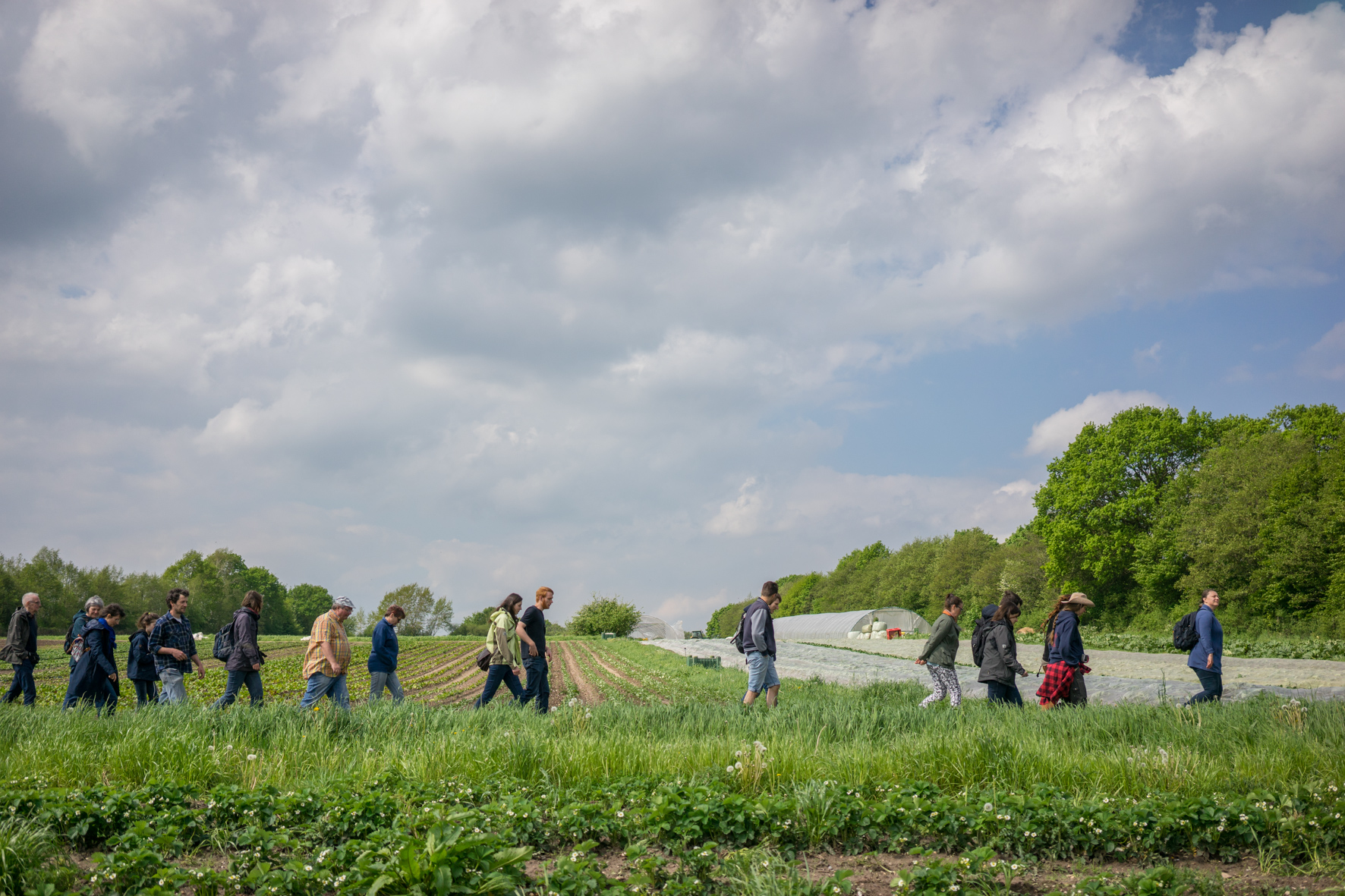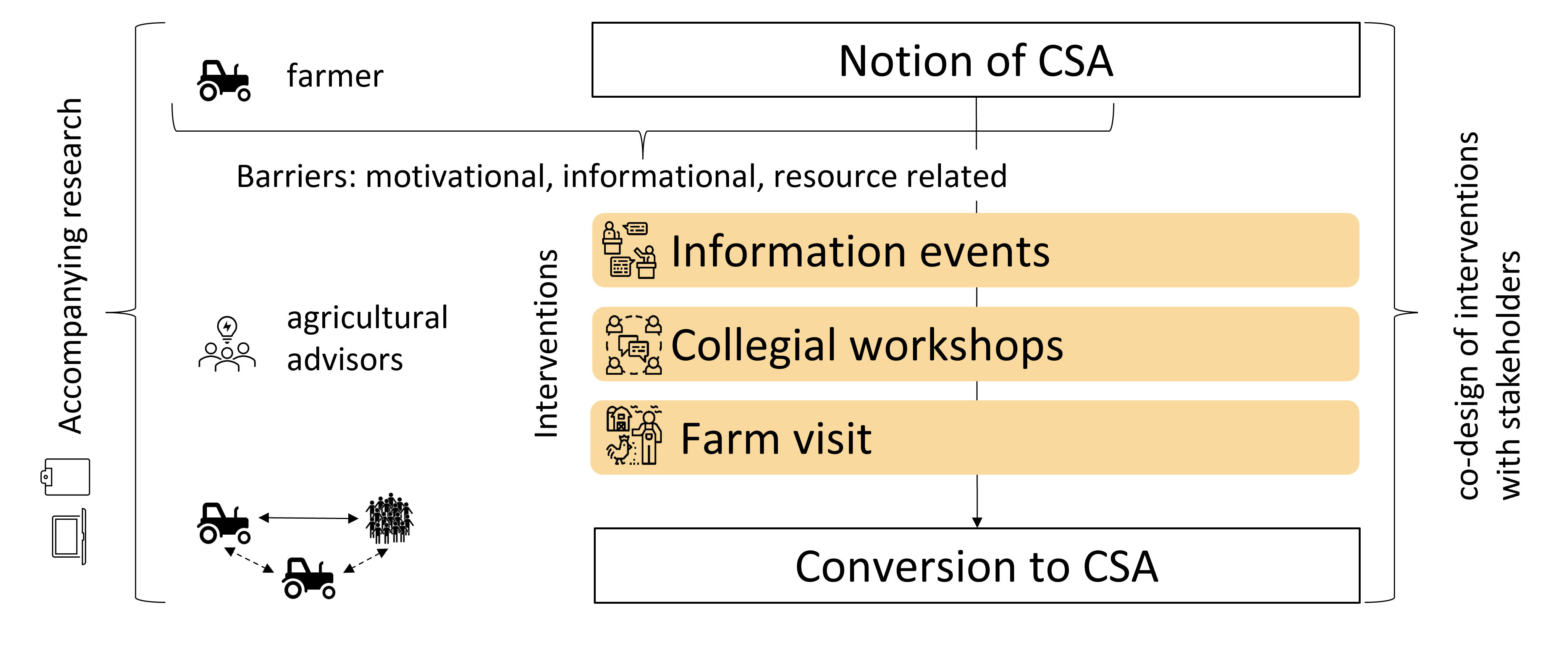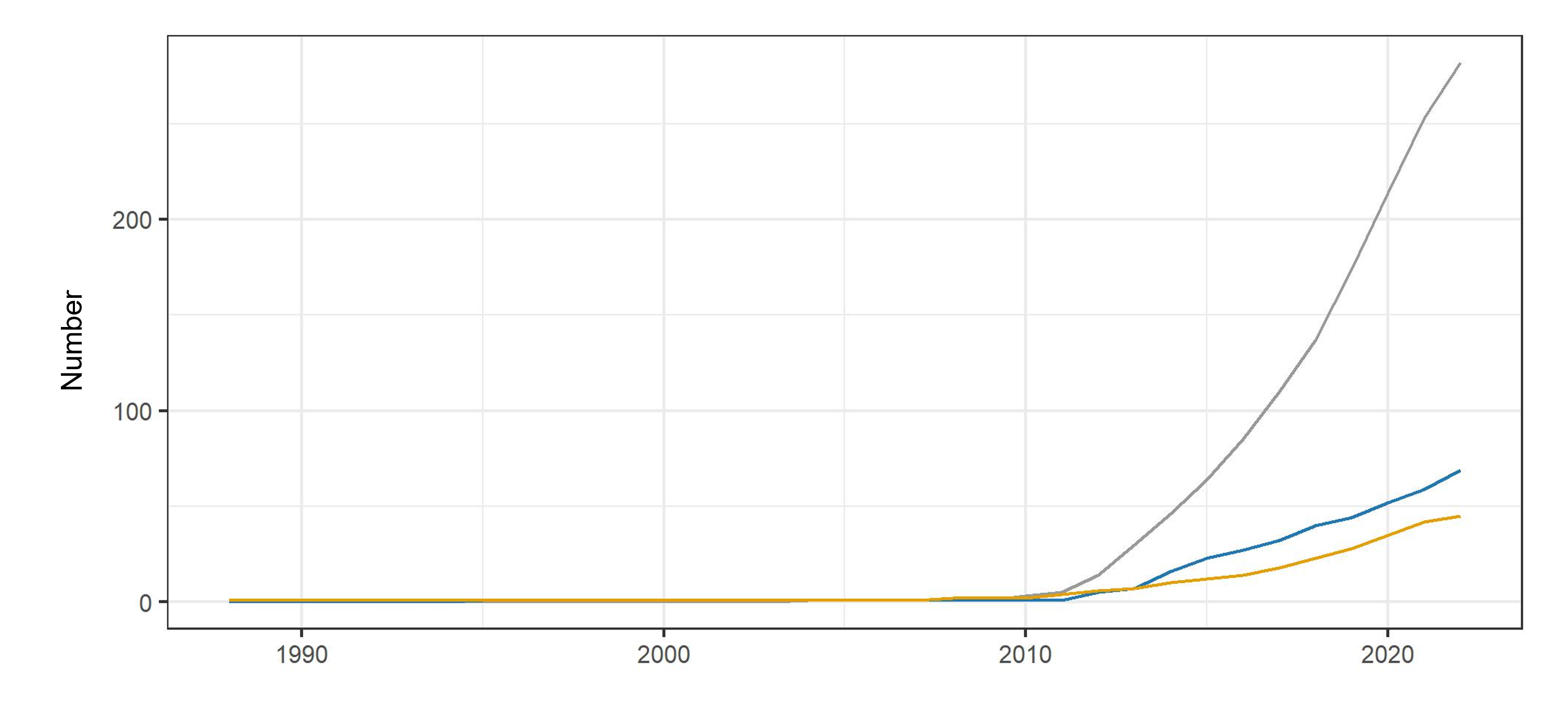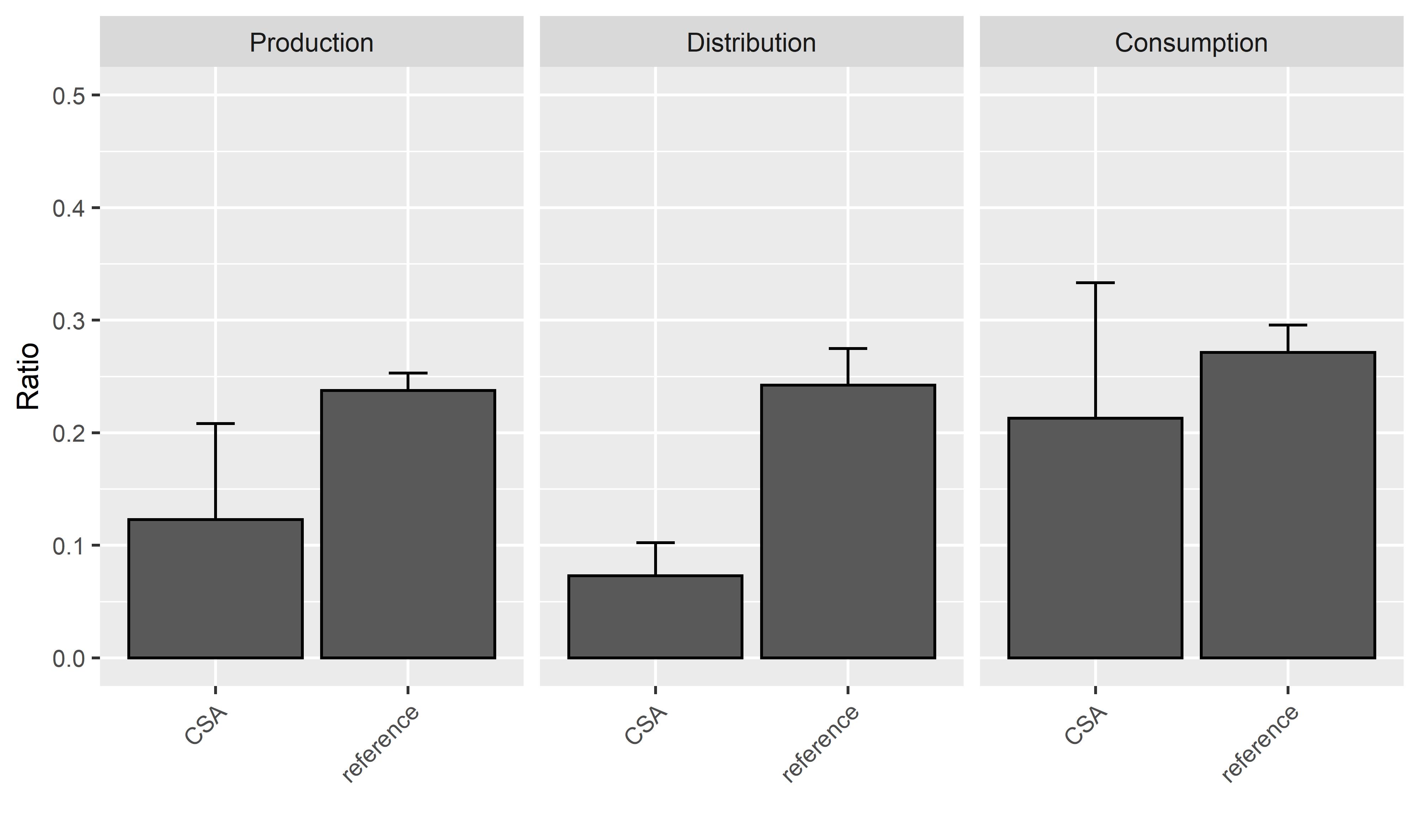
Community supported transformation of agriculture – innovative and regional (SAT-Ire)
In our working group, we explore the potential and contribution of community-supported agriculture (CSA) to the transformation toward more sustainable food systems. We take a transdisciplinary approach and involve farmers and other practitioners—such as agricultural advisors and associations—early on and continuously in the research process.
 Collaboration with different stakeholders to support farmers in the conversion to CSA (project SolaRegio)
Collaboration with different stakeholders to support farmers in the conversion to CSA (project SolaRegio)
The community-supported model combines economic, ecological, and social advantages. It therefore has the potential to be one of several responses to the multiple crises facing the current food system. CSAs connect producers and consumers in economic communities, with members committing to a financial contribution—usually monthly and over the course of a year. The total income covers the full costs of agricultural production. In return, members receive a regular share of the harvest. Despite the emergence of many CSA farms in recent years, it remains a niche phenomenon. Most CSAs have been newly established, while fewer originated from existing farms.
 Development of CSA farms in Germany that were newly established (grey), or originated from partial (blue) or full (orange) conversion of an existing farm.
Development of CSA farms in Germany that were newly established (grey), or originated from partial (blue) or full (orange) conversion of an existing farm.
Selected results
In a survey with farmers across Germany it was shown that 5-13% of the participants were interested in a conversion to CSA.
A literature review found that particularly with respect to ecological aspects, CSA achieved higher sustainability benefits than other systems.
A study involving four CSAs in Leipzig showed that food waste is significantly lower compared to the German average, particularly in production and distribution. Therefore, potential yield gaps in organic farming could be largely closed.
 Ratio of food loss and waste during production, distribution and consumption in CSAs and reference data.
Ratio of food loss and waste during production, distribution and consumption in CSAs and reference data.
Projects
In the project Community-supported agriculture in the context of regional innovation ecosystems (SolaRegio), regional innovation ecosystems were established by networking regional actors (promoters) to promote the diffusion of the Solawi concept in structurally weak regions and to encourage existing agricultural businesses to convert to CSA.
The project Innovative models for a sustainable and regional value chain: synergies and potentials of community-supported agriculture in Saxony (InnoLand-Saxony) investigated ecological, social and economic synergy effects of CSA. The aim was to increase the visibility of the CSA- concept in Saxony through a series of information events and workshops to motivate the foundation of new CSA-projects.
In the project Food use in community supported agriculture (LeVe-Solawi), the utilization paths from harvest to consumption were investigated over an entire harvest year on several CSA farms. It has been found that CSA could substantially contribute to a reduction of food losses and waste.
Publications
Thoma, R., Renz, R., Gerdes, S. Egli, L. (2023). Solidarische Landwirtschaft als Zukunftsmodell? Interesse an Solidarischer Landwirtschaft in der sächsischen Bevölkerung. Berichte über Landwirtschaft 101(3).
Egli, L., Rüschhoff, J., Priess, J. (2023). A systematic review of the ecological, social and economic sustainability effects of community-supported agriculture. Frontiers in Sustainable Food Systems 7.
Publications for practitioners
Umstellung auf Solidarische Landwirtschaft - Betriebsportraits
Contact
Lukas Egli (working group leader, SolaRegio)
Tel.: +49 (0)341 6025-2309
lukas.egli@ufz.de
Julia Palliwoda (SolaRegio)
Tel.: +49 (0)341 6025-1035
julia.palliwoda@ufz.de
